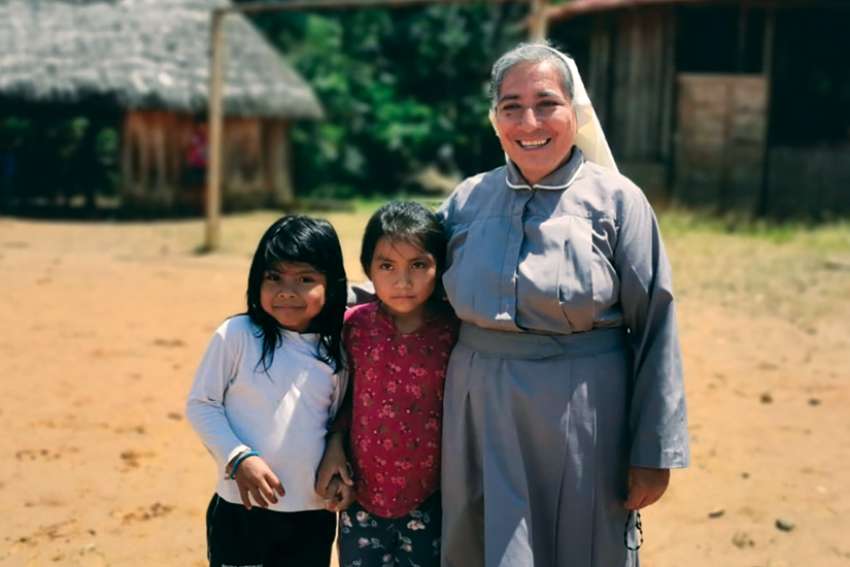The Amazon suffers from a lack of missionaries and priests, which has led to calls for the ordination of married “viri probati,” or men of proven virtue.
The ordination of married men would “respond to a concrete challenge in a concrete reality, for example, in the Amazon,” said Bishop Rafael Cob, apostolic vicar of Puyo.
“The Amazon is a geographically difficult region to evangelize, first because of its distance, its inaccessibility,” the bishop said. But there also is a “lack of candidates who can or want to be priests with that discipline (celibacy). So, logically, the Church is looking for new methods to respond to concrete challenges.”
The synod’s 45-page working document suggests studying “the possibility of priestly ordination for elders — preferably Indigenous, respected and accepted by the community — even if they have an established and stable family.”
While Pope Francis is clear that he objects to “optional celibacy” for priests, he says he is open to studying ordination for married men in remote locations. The discussion will be followed closely in Canada, where ministry to remote northern regions is difficult.
One such Amazon area is the Kichwa Indigenous community of Sarayaku, deep in the Ecuadorian Amazon and accessible only by small plane or a four-hour canoe ride. Franco Tulio Viteri Gualinga, former president of the Confederation of Indigenous Nationalities of the Ecuadorian Amazon, said his village sees a priest or bishop every two weeks or sometimes just once a month.
Without a priest, a nun living in the village leads the community in a liturgy of the word, he said.
When asked about the possibility of having an ordained married elder person in the community, Viteri said, “that’s what the Church needs to do.”
Pope Francis was asked last month if ordaining married men for remote areas would be a main topic of discussion. “Absolutely not,” he replied, calling it just one item among 146 topics in the working document.
But the proposal triggered fears of a pending change to Church doctrine. The document “lacks theological reflection” and creates “great confusion” if it puts as the focus, not Jesus, but “human ideas to save the world,” said Cardinal Gerhard Muller of Germany.


